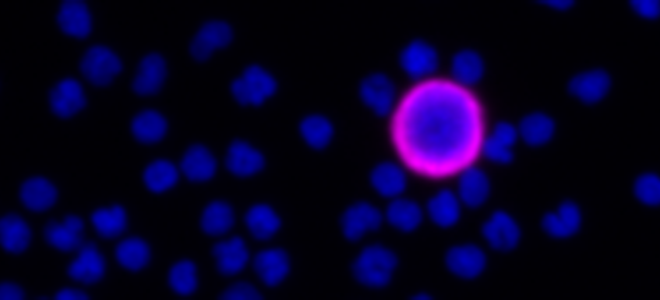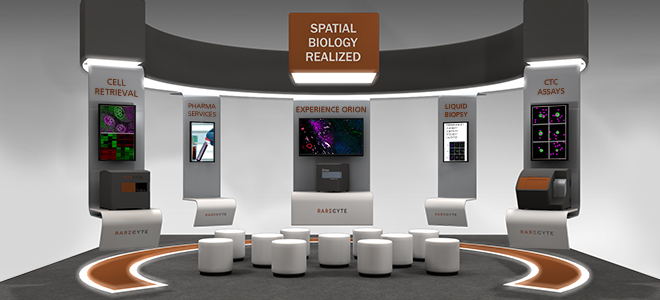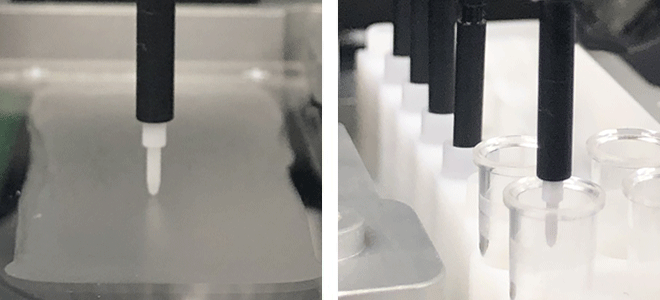Editorial Articles
How to unlock the complexity of tumor microenvironments
SelectScience
Learn how researchers used the Orion™ platform from RareCyte to generate spatial insights into tumor microenvironments
Read the article ➝
Quantitative microscopy for precision spatial biology: “From samples to knowledge”
SelectScience with Dr. Zbigniew Mikulski
In this guest editorial by Dr. Zbigniew Mikulski from the La Jolla Institute for Immunology, explore the fascinating advancements in microscopy and their role in facilitating the generation of high-resolution quantitative data, suited for translational and clinical spatial analysis.
Read the article ➝
A New Tool for Diagnosing Cancer: Platform combines structural details with molecular information about a tumor
Harvard Medical School
Researchers have developed a new tool that merges structural details with molecular information about tumors. The detailed information could enable pathologists to identify biological markers that better predict how patients will fare. The ultimate goal is to provide physicians with details that would improve cancer diagnosis and treatment.
Read the article ➝
New test might expand ability to find tumor cells in blood
University of Washington newsroom with Dr. Daniel Sabath, Professor of Laboratory Medicine and Pathology
A new blood test that can quantify tumor cells circulating in the bloodstream is ready for testing in the clinic. In preliminary work, the test has been shown to produce results comparable to the only similar test currently approved by the U.S. Food and Drug Administration, researchers in Seattle report.
Read the article ➝
Measuring versus reading – transforming the field of quantitative pathology
SelectScience interview with Dr. David Rimm, MD, PhD, Professor of Pathology at Yale University School of Medicine
Dr. David Rimm reveals how multiplex imaging can enhance the precision of breast cancer diagnostics and improve treatment outcomes for patients.
Read the article ➝
The Platform & Service Model: Orion Spatial Biology and Circulating-Tumor Cell Liquid Biopsy
DeciBio Q&A with Selena Larkin, CCO of RareCyte
Selena Larkin, CCO of RareCyte, Inc. sat down with Alex Amram to discuss Rarecyte’s product roadmap and notable R&D developments in two major precision medicine industries: Spatial Biology with their Orion platform as the latest entrant and Liquid Biopsy with CyteFinder II circulating-tumor cell (CTC)-based analysis.
Read the article ➝
Bringing spatial biology to the clinic: “A new lens on cancer biology”
In partnership with Dr. Arutha Kulasinghe, University of Queensland, Australia, and SelectScience
Spatial transcriptomics pioneer, Dr. Arutha Kulasinghe, shares his latest work in understanding the underlying tumor biology using an integrative multi-omics approach, and how it could inform therapy decisions.
Read the article ➝
eBooks
Qualitative and quantitative evaluation of the tissue micro-environment by high-resolution 17-plex immunofluorescence reveals distinct cell populations
Presented at SITC 2021
Download the eBook →
RareCyte: Your end-to-end solution for Spatial Biology and Liquid Biopsy Imaging and Analysis
RareCyte is a full-service provider of Precision Biology™ products and services utilizing best in class platforms for both spatial biology and liquid biopsy. We deliver quality-focused, end-to-end solutions from custom assay development to clinical trial testing for researchers, translational scientists, and drug development and diagnostics organizations.
Explore the Orion platform for spatial biology & quantitation ➝




